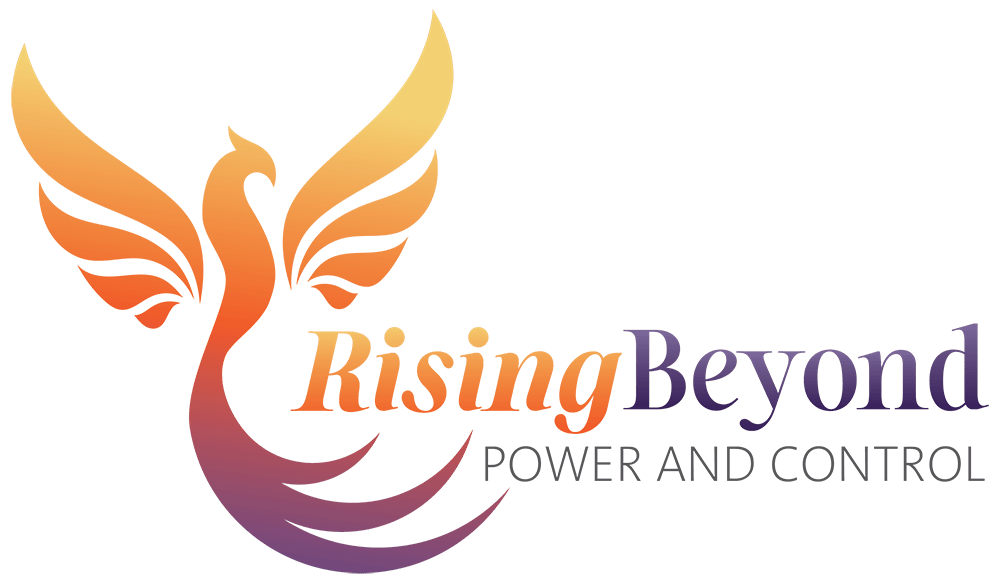 How many times do you hear women say, “I did it for my children"? It’s nearly a universal answer. We sought an education or a new job to give them a better life. If they need extra care, we find a way to spend less time at work and more time with our children. We move to a better school district. We travel to find the right specialist. We throw them a birthday party when what we really need is a new bra and underwear or maybe a medical procedure with a decent copay and some recovery time. This is the world that we live in. I know that I built my entire mid-twenties to mid-thirties around mothering. It’s what culture tells us is an acceptable use of our time and resources. We are praised for it. It feels good. Until you do something for yourself, which may also be for your children, but the primary goal is your wellness. Then people start to talk, and those around you who benefit from your martyrdom become angry. Now, they are having to spend some of their time and resources parenting. It is appalling to society and to a partner who feels fully entitled to use all of their resources for their benefit and think that women should be the only one to sacrifice time and resources for child rearing.
0 Comments
By Sybil Cummin, MA, LPC, ACS  Maintaining a meaningful connection with your child when stuck in a “high-conflict” co-parenting situation can be a daunting task, especially if they spend more time with your ex-partner. Strategies will be different depending on the age of your child, so in this article we’re going to share strategies specifically for older kids that can help bridge the emotional gap and foster a sense of connection despite the circumstances. If you believe that there is a strong likelihood that your child is being indoctrinated to believe lies about you, these strategies can help but likely will not be enough to completely challenge that level of conditioning. Stay tuned for future articles where we will go into more detail on these cases. Understanding the Dynamics Navigating the complexities of maintaining a connection with your child when they spend more time with your ex-partner means taking a look at various factors. The age and development of the child, your pre-existing relationship, and their feelings toward the living situation all play a crucial role. The strategies in this article are tailored for older kids, with the understanding that these can be adapted for younger children. Reshaping The Family Court System for Survivors of Narcissistic Abuse: Lessons from Lundy Bancroft8/15/2023
By Sybil Cummin, MA, LPC, ACS

In the high-stakes arena of family court, where the well-being of children should be in the forefront of everyone’s minds, survivors of domestic violence and narcissistic abuse are often ignored or even punished for trying to protect their children.
Navigating legal proceedings with an abusive ex can feel like an endless battle. In Episode 60 of The Rising Beyond Podcast, Beyond Legislation: Reshaping Family Court with Lundy Bancroft, our expert guest shines a spotlight on the systemic challenges and the potential pathways to a reformed family court that truly protects the vulnerable. There are so many lessons that we can take away from this episode that features Lundy Bancroft, a leading authority on interventions for abusive men and passionate advocate for women survivors. I wanted to give you all the “Cliffs Notes” version of the top three takeaways that promise to reshape your understanding of family law, advocacy, and healing. By Sybil Cummin, MA, LPC, ACS  Do y’all remember that ridiculous spectacle of Charlie Sheen where he basically coined the term “Winning!” It shined a spotlight on his mental health state and was also annoying in my opinion. And it feels remarkably similar to how a narcissistic ex acts after the relationship has ended and they have found ways to manipulate the family court system. So, what does it mean in your ex’s world to win?
The difficult part about this entire situation is that the way that our family court system is set up allows and actually seems to encourage these behaviors. By Sybil Cummin, MA, LPC, ACS  Having a hard time falling asleep worrying about your kids? How are they doing in school? Are they making healthy friends? Am I preparing them for all that life throws at them? Does worry about how your child is coping with the new parenting plan or worry about their safety at the other home keep you up all night and hypervigilant all day? You are not alone. Parents worry a ton in general, however if you have experienced domestic violence or narcissistic abuse or are dealing with family court with your abuser, this is likely not an every-now-and-then issue. You are probably chronically losing sleep. Is there anything we can do about it? By Sybil Cummin, MA, LPC, ACS  If I had a dollar for all of the times that I heard a survivor of domestic violence or narcissistic abuse tell me that if they knew then what they know now about post-separation abuse, they would have done things differently, I would be rich. Victims are told to escape and that things would get better and safer. But is this really the case? In my experience and those of my clients, this could not be any more false. And this is especially true if you share children with your abusive partner. You will experience abuse in another form, post-separation abuse. So, what is post-separation abuse? Abusive relationships are all about one partner gaining and maintaining power and control over their victim. When an abusive relationship ends, the abuser’s need for power and control doesn’t. In fact, because there is a significant decrease in the amount of control they have over their victim, very often the abuse increases. By Sybil Cummin, MA, LPC, ACS  In an ideal world, co-parenting would be a great idea. You would be able to discuss your concerns respectfully and keep the children's best interest at the heart of every decision. Although you might disagree on some things, you could have trust that your ex is coming from a place of authenticity and genuine care for your children. You would NOT feel anxious any time you received a text, email, or call. But, really? With this guy? Co-parenting? Ok ok, all jokes aside. You are in it and have to figure this out. So let's take a look at what is in the best interests of your kiddos, what is in your best interest, and what is in the best interest of your ex. By Sybil Cummin, MA, LPC, AC  What?!?!?! You’ve got to be kidding me?!?!?! My ex has won over and over again. No accountability. The smear campaigns and false allegations against me (even on the stand), and you are telling me to let him win?!?! If you are thinking that we can’t be friends anymore, let me explain. When you are going through a “high conflict” divorce with an abusive ex, I’m sorry to tell you that it is going to be a battle. A long one at that. And for most survivors of abuse, it feels like you are doing everything just to keep your head above water day in and day out. There is nothing fair about this situation. Nothing. So, what can you do to get to shallow enough water to stand up for yourself and your children? By Sybil Cummin, MA, LPC, ACS  1. Taking Control of the Timeline of the Case If your client is hesitant or fearful to testify, their abuser knows it. How can the abuser use this to their advantage? They can use different tactics to continue the case. Some of these cases take over a year for the jury trial to occur, forcing your client to show up to court each time, experiencing all of the anxiety that occurs with this, only to find out that the case will be continued for another 6-8 weeks. This can happen numerous times for numerous reasons. This also effects other potential witnesses. By Sybil Cummin, MA, LPC, ACS Note: While the statistics show that males perpetrate violence towards females at a much higher rate, women can also perpetrate domestic violence.  While our family court systems say their decisions are based on the best interests of the children, the evidence proves otherwise. Research suggests that in an estimated 30 to 60 percent of the families where domestic violence is identified, some form of co-occurring child maltreatment is also present (Children’s Hospital of Philadelphia Center for Injury Research and Prevention). One North American study found that children who were exposed to domestic violence were 15 times more likely to be physically and/or sexually abused than the national average (Volpe, 1996). And yet, domestic violence is not a major factor in determining who has access to unsupervised time with the children. I have several clients who have shared that attorneys have told them NOT to say anything about their experiences of domestic violence during family court proceedings as there are typically WORSE outcomes regarding parenting time and decision making for those who report the violence they have experienced. And as I talk with other professionals working with victims of domestic violence, this is not a small issue that is isolated to my community. Talking about domestic violence is considered the “kiss of death” by many family court attorneys. |
AuthorSybil Cummin, MA, LPC, ACS, is a Licensed Professional Counselor who specializes in working with victims and survivors of narcissistic abuse. Archives
July 2024
Categories
All
|
About |
Resources |
Member Content
|
The content on this website is meant for informational and educational purposes only and is not intended to substitute medical or mental health diagnosis or treatment. Rising Beyond Power and Control also differentiates between coaching services and counseling services. You can read our full Disclaimer here.

 RSS Feed
RSS Feed
